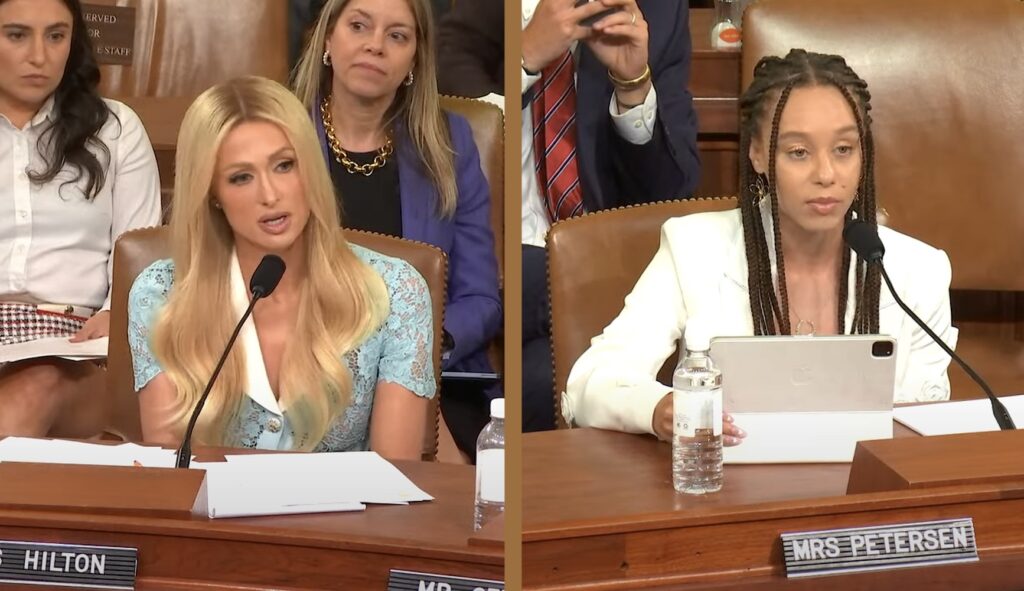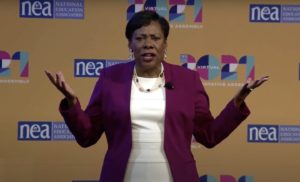Paris Hilton, Tori Hope Petersen retell childhood abuse, advocate for child welfare reform in congressional hearing
In a recent hearing before the House Committee on Ways and Means, Paris Hilton, hotel heiress, and Tori Hope Petersen, author and foster youth advocate, shared their lived testimonies regarding the…

In a recent hearing before the House Committee on Ways and Means, Paris Hilton, hotel heiress, and Tori Hope Petersen, author and foster youth advocate, shared their lived testimonies regarding the child welfare system.
Part of the hearing focused on policies to prevent instances of abuse and neglect, including proposals to strengthen the Title IV-B program – the portion of the Social Security Act that centers on child welfare funding.
Hilton detailed the harrowing experiences she endured at the age of 16 when she was forcibly removed from her home in the middle of the night and transported to the first of four youth residential treatment facilities.
“These programs promised healing, growth and support, but instead did not allow me to speak, move freely, or even look out a window, for two years. I was force-fed medications and sexually abused by the staff. I was violently restrained and dragged down hallways, stripped naked, and thrown into solitary confinement,” Hilton shared.
Hilton went on to state that, while her biological parents had placed her in residential treatment, many of the youth whom she encountered during her time in the facilities included those in the child welfare system and adoptees.
“My parents were completely deceived, lied to, and manipulated by this for-profit industry, about the inhumane treatment I was experiencing. So – can you only imagine the experience for youth who are placed by the state and don’t have people regularly checking in on them?”
During the hearing, House members also sought information on topics such as encouraging economic self-sufficiency among disadvantaged youth. Rep. Darin LaHood, R-Illinois, who is the Work and Welfare subcommittee chairman, inquired how best to remove barriers to employment for foster youth seeking the “dignity of work.”
“The point is not that we shouldn’t help,” Petersen explained, “but that there is a point when helping hurts and it’s our responsibility as the helper to figure out where that point is.”
Petersen went on to caution that providing excessive resources to vulnerable populations can become “enabling” to both the youth themselves and the communities ultimately responsible for ensuring their wellbeing.
Notably, despite the similarities in their lived experiences as youth and their path to child advocacy, Petersen and Hilton represent vastly different ideological backgrounds.
While Hilton has blurred lines on her political stances, allegedly voting for President Trump in 2016 and later claiming she only “pretended,” she has also publicly characterized her past abortion in a positive light, despite calling it an “intensely private agony.”
By contrast, Petersen is an outspoken Christian who wrote extensively about her faith in her memoir, Fostered, in which she shares about her childhood growing up in the child welfare system.
Conceived in rape to a mother who struggled with drugs, Petersen is now a pro-life mother who advocates for foster youth and adoption.
“Having pro-life values means that we believe that every life has inherent dignity, no matter how it comes into the world, whether it’s in a womb or whether it’s walking outside in some capacity,” Petersen shared in an interview with Essence magazine.
“No matter if that life is in the womb, or that life is in foster care. No matter if that life is disabled, no matter what, we celebrate it.”



